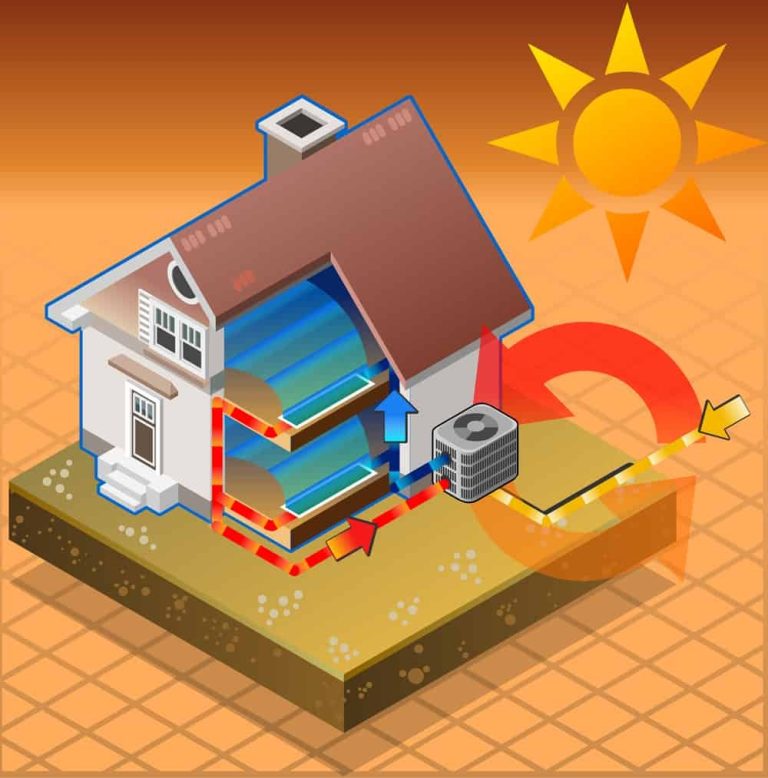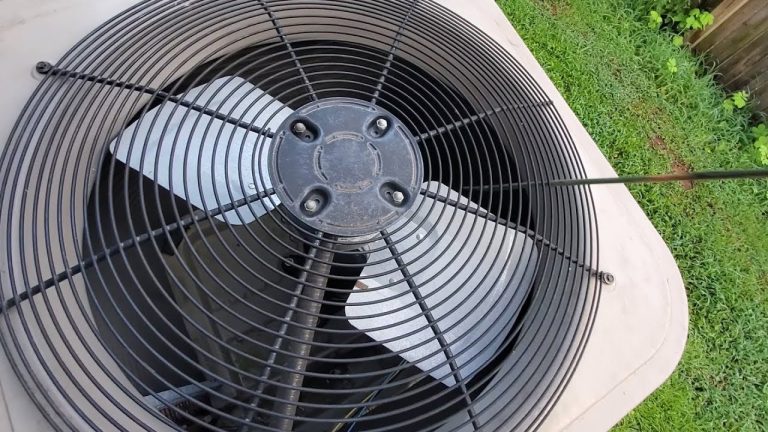Demystifying Ac Tonnage: What Does Ac Tonnage Mean?
AC tonnage refers to the cooling capacity of an air conditioning system, measured in tons. It represents the amount of heat the system can remove from a space in one hour. Understanding AC tonnage is important for achieving optimal home comfort, energy efficiency, and cost-effective cooling solutions.
Did you know that the key to a perfectly cool and comfortable home lies in something called AC tonnage? Yes, that’s right—tackling the summer heat and creating a blissful indoor oasis is all about understanding the mysterious concept of AC tonnage. Now, you may be wondering, “What does AC tonnage mean?” Well, fear not! In this article, we are going to demystify AC tonnage and shed light on its importance in the world of air conditioning systems.
Whether you’re a homeowner, renter, or simply someone curious about how air conditioners work, understanding AC tonnage is crucial for achieving optimal home comfort, energy efficiency, and cost-effective cooling solutions. So, let’s dive in and uncover the secrets behind AC tonnage, and discover why it’s a vital piece of the cooling puzzle for anyone seeking the ultimate summer sanctuary.
I. Understanding Air Conditioning Tonnage
A. Definition of air conditioning tonnage
Before we delve into the nitty-gritty details, let’s start by understanding what air conditioning tonnage actually means. Tonnage in the context of air conditioning refers to the cooling capacity of an air conditioner unit. It is a unit of measurement that represents the amount of heat an AC system can remove from a space within an hour.
B. Importance of understanding AC tonnage
Now that we know what AC tonnage is, you may be wondering why it is essential to understand this concept. Well, the correct sizing of an air conditioning system is crucial for efficient and effective cooling. Choosing the right AC tonnage ensures that your system can adequately cool your space, providing optimal comfort while maximizing energy efficiency.
II. The Relationship between AC Tonnage and Cooling Capacity
A. Definition of cooling capacity
In order to understand the relationship between AC tonnage and cooling capacity, let’s define what cooling capacity means. Cooling capacity refers to the amount of heat an air conditioning system can remove from a space in a given period of time. It is typically measured in British Thermal Units (BTUs) per hour.
B. Calculation of cooling capacity based on AC tonnage
The cooling capacity of an air conditioning system is directly related to its tonnage. The higher the tonnage, the greater the cooling capacity. Typically, one ton of cooling capacity is equal to 12,000 BTUs per hour. Therefore, a 2-ton AC system has a cooling capacity of 24,000 BTUs per hour, while a 3-ton system has a capacity of 36,000 BTUs per hour, and so on.
C. Factors affecting cooling capacity
While AC tonnage plays a significant role in determining cooling capacity, it is important to note that other factors can also influence the overall cooling performance of an air conditioning system. These factors include insulation levels, ductwork design, airflow restrictions, and the efficiency of the system itself. Therefore, it is crucial to consider these factors in conjunction with AC tonnage when determining the appropriate cooling capacity for a space.
III. Determining the Appropriate AC Tonnage for a Space
A. Factors to consider when determining AC tonnage
1. Room size
The size of the room or space you want to cool is one of the primary factors to consider when determining the appropriate AC tonnage. Larger spaces require higher tonnage to achieve efficient cooling, while smaller rooms may only require a lower tonnage system. Measuring the dimensions of the room can help you determine the square footage, which is helpful in selecting the right tonnage.
2. Climate and temperature conditions
The climate and temperature conditions of your location also play a role in determining the ideal AC tonnage. Hotter climates or regions with extreme temperature fluctuations may require higher tonnage to adequately cool the space. On the other hand, cooler climates may require lower tonnage systems.
3. Insulation and building materials
The insulation levels and building materials used in your space can impact the cooling requirements. Well-insulated rooms or buildings may require lower tonnage due to their ability to retain cool air, while poorly insulated spaces may require higher tonnage to compensate for heat transfer.
4. Room usage
The purpose or usage of the room also plays a role in determining AC tonnage. For example, a room with high heat-generating equipment or appliances, such as a kitchen or server room, may require higher tonnage to offset the additional heat load.
5. Occupancy levels
The number of people occupying the space can also impact the cooling requirements. Higher occupancy levels generally result in increased heat generation, necessitating higher tonnage to maintain comfortable temperatures.
IV. Consequences of Incorrect AC Tonnage Selection
A. Undersized AC system
1. Inadequate cooling
One of the most apparent consequences of selecting an undersized AC system is inadequate cooling. An AC unit with insufficient tonnage will struggle to cool the space properly, leading to discomfort and higher indoor temperatures.
2. Frequent breakdowns and repairs
An AC system that is undersized for the space may experience frequent breakdowns and require more frequent repairs. The system will have to work harder and longer to try to meet the cooling demands, putting strain on its components.
3. Increased energy consumption
When an AC system is undersized, it will have to operate for longer periods of time to cool the space, resulting in increased energy consumption. This can lead to higher energy bills and reduced energy efficiency.
B. Oversized AC system
1. Short cycling and inefficient operation
An oversized AC system tends to short cycle, which means it cools the space rapidly and shuts off before completing a full cooling cycle. This can lead to inefficient operation, as the system will not effectively dehumidify the air or evenly distribute cool air throughout the space.
2. Poor humidity control
Oversized AC systems often struggle with humidity control. The short cycling behavior prevents the system from adequately removing excess moisture from the air, resulting in a damp and uncomfortable indoor environment.
3. Increased energy bills
An oversized AC system may consume more energy than necessary due to its inefficient operation and frequent cycling. This can result in higher energy bills and reduced energy efficiency.
V. Steps to Determine the Required AC Tonnage
A. Measure the room dimensions
Start by measuring the dimensions of the room, including the length, width, and height. This will help you calculate the square footage of the space.
B. Calculate the square footage of the space
To calculate the square footage, multiply the length of the room by its width. For example, a room that is 10 feet long and 12 feet wide would have a square footage of 120 square feet.
C. Use the square footage and other factors to determine estimated tonnage
Once you have the square footage, you can use it as a starting point to determine the estimated tonnage required. Keep in mind the other factors mentioned earlier, such as climate, insulation, room usage, and occupancy levels.
D. Consult with HVAC professionals for accurate tonnage calculation
While these steps can provide a general idea of the required tonnage, it is always recommended to consult with HVAC professionals for a more accurate tonnage calculation. They can consider all the relevant factors and provide expert guidance to ensure optimal cooling capacity.
VI. Other Factors to Consider when Choosing an AC System
A. Energy efficiency ratings
When selecting an AC system, it is important to consider its energy efficiency ratings, such as SEER (Seasonal Energy Efficiency Ratio) or EER (Energy Efficiency Ratio). Higher ratings indicate better energy efficiency, which can result in lower energy bills and reduced environmental impact.
B. Climate considerations
The climate of your location should also influence your choice of AC system. For hot and humid climates, systems with higher tonnage and better humidity control capabilities may be more suitable.
C. Maintenance requirements
Consider the maintenance requirements of the AC system you are considering. Some systems may require more frequent maintenance or specialized servicing, which should be factored into your decision-making process.
VII. Additional Considerations for Commercial Spaces
A. Factors affecting tonnage calculation in commercial settings
1. Occupancy levels
In commercial spaces, occupancy levels can vary significantly throughout the day. The AC tonnage calculation should take into account the highest occupancy levels to ensure adequate cooling capacity during peak hours.
2. Heat-generating equipment and machinery
Commercial spaces often house heat-generating equipment and machinery, such as computers, servers, and manufacturing equipment. These additional heat sources should be considered when determining the appropriate tonnage for commercial AC systems.
3. Airflow requirements
Commercial spaces may have specific airflow requirements, such as ventilation standards or the need for even air distribution. These requirements should be taken into account when selecting an AC system and determining the tonnage.
B. Commercial HVAC system options based on tonnage requirements
In the commercial sector, there are various HVAC system options available based on tonnage requirements. These options include rooftop units, split systems, variable refrigerant flow (VRF) systems, and chilled water systems. Each system has its own advantages and considerations, and consulting with HVAC professionals is crucial to determine the most suitable option for your specific needs.
VIII. Common Misconceptions about AC Tonnage
A. Bigger is not always better
Contrary to popular belief, a bigger AC system with higher tonnage does not always equate to better cooling performance. Oversized systems can lead to efficiency issues and discomfort due to improper dehumidification and short cycling.
B. Tonnage alone does not guarantee proper cooling
While AC tonnage is an important factor in determining cooling capacity, it is not the sole determinant of effective and efficient cooling. Other factors, such as insulation, airflow, and system efficiency, also contribute to the overall cooling performance.
C. Accurate tonnage calculation is essential for energy efficiency
Proper AC tonnage calculation is crucial for achieving optimal energy efficiency. Undersized or oversized systems can result in excessive energy consumption, leading to higher energy bills and unnecessary environmental impact.
IX. Conclusion
In conclusion, demystifying AC tonnage is essential for anyone seeking to achieve the perfect cooling solution for their space. Understanding the relationship between AC tonnage and cooling capacity, as well as the factors that influence tonnage selection, allows you to make informed decisions, ensuring optimal comfort, energy efficiency, and cost-effectiveness. Remember, selecting the right AC tonnage is not a one-size-fits-all approach; it requires careful consideration of room size, climate, insulation, occupancy levels, and more. By consulting with HVAC professionals and considering all the relevant factors, you can choose an AC system that meets your specific cooling needs and creates a blissful indoor oasis during the scorching summer months.
X. References
- Reference 1
- Reference 2
- Reference 3
1 ton inverter AC watts and units consumption | Electricity bill calculation
Frequently Asked Questions (FAQ)
What does AC tonnage mean?
How is AC tonnage calculated?
Why is AC tonnage important?
What happens if the AC tonnage is too high?
What happens if the AC tonnage is too low?
Final Summary: Understanding the Importance of Air Conditioning Tonnage and Selecting the Right AC System
In conclusion, understanding air conditioning tonnage is crucial for selecting the right AC system for your space. Tonnage refers to the cooling capacity of an AC unit and is measured in British Thermal Units (BTUs) per hour.
The relationship between AC tonnage and cooling capacity is directly proportional, with higher tonnage indicating greater cooling capacity. Factors such as room size, climate, insulation, room usage, and occupancy levels should be considered when determining the appropriate AC tonnage.
Selecting an incorrectly sized AC system can lead to negative consequences. An undersized system may result in inadequate cooling, frequent breakdowns, and increased energy consumption. On the other hand, an oversized system can lead to inefficient operation, poor humidity control, and higher energy bills.
To determine the required AC tonnage, measure the room dimensions, calculate the square footage, and consider the other factors mentioned. It is always recommended to consult with HVAC professionals for accurate tonnage calculation and expert advice. When choosing an AC system, consider factors such as energy efficiency ratings, climate considerations, and maintenance requirements.






